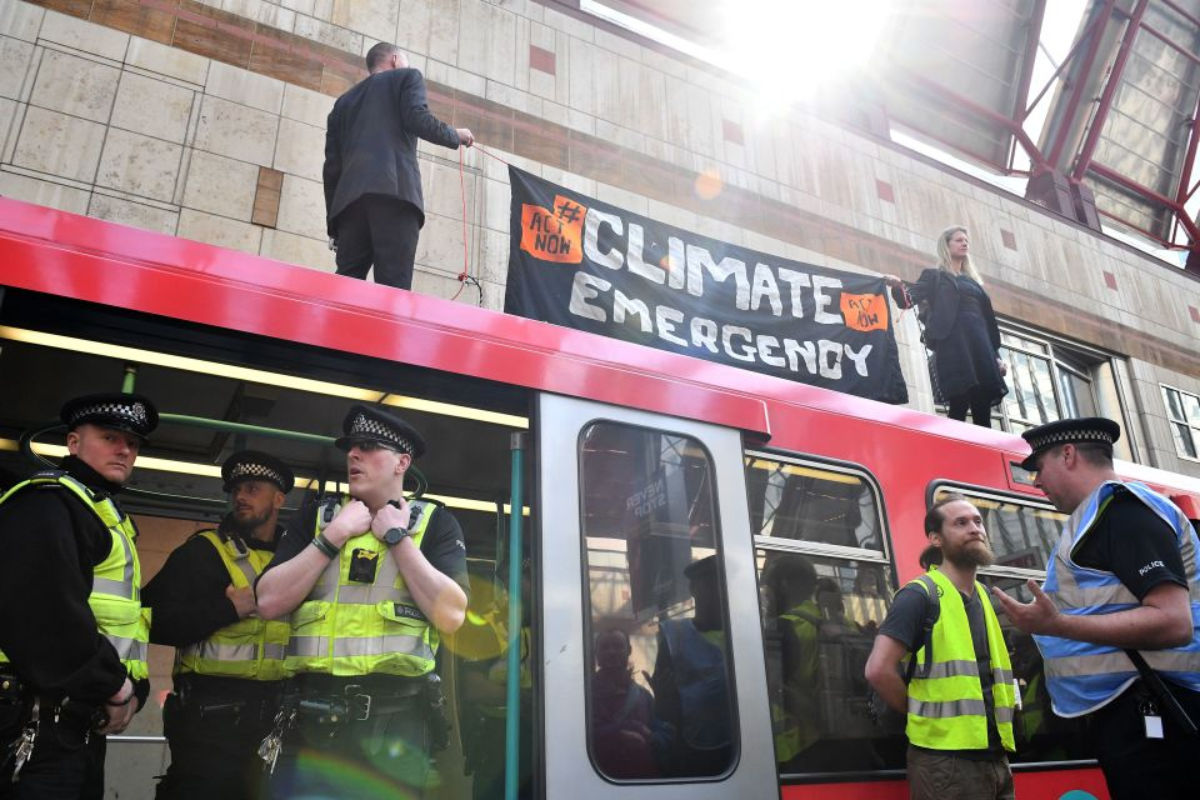Hundreds of climate activists gathered in London to demonstrate as appeals were heard for jailed environmental campaigners. These activists are challenging convictions for participating in non-violent protests that blocked roads and disrupted businesses to highlight the urgency of climate change. Their protests have brought attention to ongoing legal battles, with the campaigners arguing that their actions were necessary due to government inaction on critical climate issues.
The January 2025 appeals are seen as a turning point for climate activism in the UK. Supporters of the activists argue that the legal system should prioritize environmental concerns over public order, particularly when protestors demand immediate climate action. However, critics believe such protests cause unnecessary disruptions and undermine efforts to address environmental concerns through peaceful methods.
This case highlights the growing divide between government policies and climate activists’ demands for stronger action on climate change. As many view climate change as an existential threat, protests have escalated, challenging traditional views on civil disobedience. The activists involved argue that the severity of the climate crisis justifies their actions, which they see as necessary protests due to inadequate political responses.
Protesters in London displayed banners and chanted slogans, calling for immediate climate action and expressing solidarity with the jailed activists. These demonstrations show the level of support for climate action and underline the tension between activists’ urgency and the government’s inaction. As climate-related protests increase, the legal system faces growing pressure to find a balance between maintaining public order and addressing the climate crisis.
The outcome of these appeals is expected to set a significant precedent for how future climate protests are managed in the UK. If the activists’ convictions are overturned, it may change how the legal system views civil disobedience in the context of climate issues. However, if the convictions stand, it could signal that public order takes precedence over the right to protest, even when it concerns critical environmental issues.
This case also raises broader questions about the role of protest in influencing government policy. Many argue that direct action is necessary to draw attention to climate change, which might otherwise be ignored. Non-violent protests, like those staged by these activists, are seen as a last resort when traditional methods like voting and petitions have failed to bring about sufficient change.
The case further illustrates the tension between climate activism and law enforcement, as police are tasked with managing protests that disrupt public life. As the frequency of climate-related protests rises, authorities face increasing challenges in balancing the right to protest with the need to maintain order. The legal challenges surrounding these protests are likely to increase as climate change continues to dominate global conversations.
Ongoing legal battles have intensified the call for more effective climate action. Supporters of the activists argue that their actions are justified by the urgency of the climate crisis and the lack of sufficient government measures. A ruling in favor of the activists could shift how the UK approaches climate change and the role of protest in advocating for it.
As the protests continue and legal appeals unfold, the future of climate activism in the UK remains uncertain. The case’s outcome could influence how future activists approach their protests and whether they encounter similar legal obstacles. Regardless of the decision, the growing divide between government policies and climate activists’ demands will continue to fuel debates about the role of protest in addressing the climate emergency.




